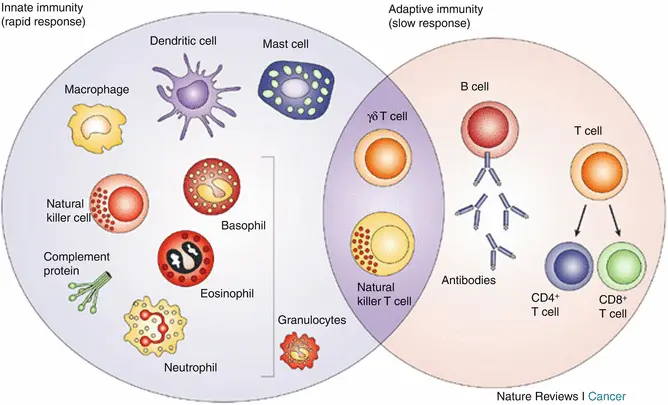The immune system serves as the body’s defense mechanism, protecting against infections and diseases. While genetics and overall health play vital roles in Immune function, nutrition in Immune is a key factor that significantly influences the immune system’s efficiency. In this comprehensive article, we’ll explore the intricate relationship between nutrition in Immune and immune system support, delving into the impact of various nutrients, dietary patterns, and lifestyle choices.
The Basics of the Immune System

Understanding the Immune System’s Components:
Before delving into the connection between nutrition in Immune and immune health, it’s crucial to grasp the basics of the immune. Comprising various organs, cells, and proteins, the immune functions to defend the body against harmful invaders. Key components include white blood cells, antibodies, and the lymphatic system. An intricate network of interactions, these components work together to identify and neutralize pathogens such as bacteria, viruses, and fungi.
How the Immune System Works:
The immune operates through a multi-step process, involving recognition, activation, and response. Understanding this process is fundamental to appreciating the impact of nutrition in Immune on immune function. From the initial identification of foreign substances to the deployment of immune cells, each stage relies on the availability of specific nutrients.
Vitamin C: The Immune-Boosting Powerhouse
Widely recognized for its immune-boosting properties, vitamin C plays a pivotal role in the production and function of white blood cells. Additionally, it acts as a potent antioxidant, neutralizing free radicals that can compromise immune function. Sources of vitamin C, dietary recommendations, and its impact on immune health will be explored in detail.
Vitamin D: Sunshine for Immune Support
Often referred to as the “sunshine vitamin,” vitamin D is crucial for immune modulation. Its deficiency has been linked to increased susceptibility to infections. This section will delve into the sources of vitamin D, its role in immune regulation, and the importance of maintaining optimal levels.
Zinc: A Trace Element with Immune Significance
Zinc is an essential trace element that plays a vital role in various immune functions, including the development and activity of immune cells. This segment will discuss the sources of zinc, its impact on immune response, and the consequences of zinc deficiency.
Protein and Immune Function
Proteins are the building blocks of life and play a crucial role in immune function. This section will explore how proteins contribute to the production of antibodies, immune cell development, and overall immune maintenance. It will also discuss the importance of a balanced protein intake for optimal immune support.
The Gut Microbiota and Immune System Crosstalk
The gut microbiota, a complex community of microorganisms residing in the digestive tract, has emerged as a key player in immune regulation. This section will delve into the symbiotic relationship between gut bacteria and immune function, highlighting the impact of dietary choices on maintaining a healthy gut microbiome.
Mediterranean Diet and Immune Support
The Mediterranean diet, rich in fruits, vegetables, whole grains, and healthy fats, has been associated with numerous health benefits, including immune support. This segment will explore the components of the Mediterranean diet and their specific contributions to immune health.
Plant-Based Diets and Immune Function
Plant-based diets, characterized by the exclusion of animal products, have gained popularity for their potential health benefits. This section will investigate how a plant-based approach influences immune function, emphasizing key nutrients obtained from plant sources and potential considerations for maintaining immune health.
Exercise and Immune Function
Regular physical activity has been linked to a strengthened immune. This section will explore the impact of exercise on immune function, optimal exercise regimens for immune support, and the importance of balancing intensity and duration.
Sleep and Immune System Harmony
Adequate sleep is vital for overall health and well-being, including immune function. This segment will delve into the relationship between sleep and the immune, discussing the importance of quality sleep, recommended sleep durations, and practical tips for improving sleep hygiene.
Putting It All Together: Creating an Immune-Supportive Lifestyle

This final section will synthesize the information presented throughout the article, offering practical tips for creating a lifestyle that supports immune health. From incorporating immune-boosting foods into daily meals to adopting habits that promote overall well-being, readers will gain actionable insights for enhancing their immune resilience.
Conclusion
In conclusion, the intricate interplay between nutrition and immune support underscores the importance of mindful dietary choices and lifestyle habits. By understanding the role of specific nutrients, embracing balanced dietary patterns, and incorporating immune-supportive practices, individuals can empower themselves to bolster their immune defenses and promote long-term health. As we navigate the complex landscape of immune function, one thing remains clear nutrition is a powerful ally in the quest for a resilient and robust immune system.

Insightful Blogger Navigating News, Business, Tech, and More on its newsy: Meet Herman Danner, a seasoned blogger on its newsy, with a keen eye for dissecting the latest in news, unraveling business dynamics, and exploring the ever-evolving landscape of technology. Herman’s blogs offer a multifaceted perspective on various niches, providing readers with insightful analyses and a comprehensive view of the fast-paced world we live in. Join Herman on its newsy for a thought-provoking journey through news, business, tech, and beyond. Contact: [email protected]